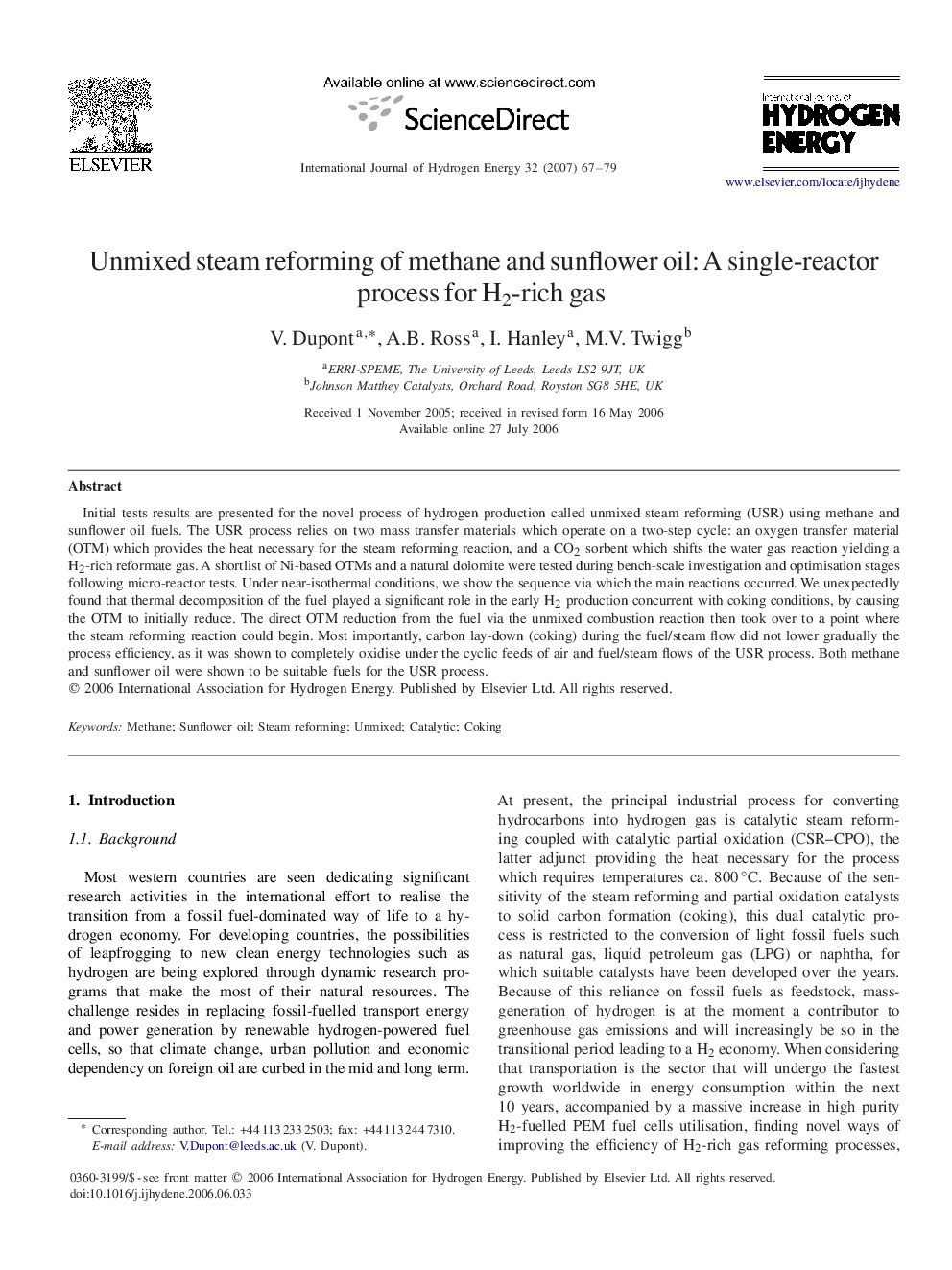| Article ID | Journal | Published Year | Pages | File Type |
|---|---|---|---|---|
| 1280794 | International Journal of Hydrogen Energy | 2007 | 13 Pages |
Initial tests results are presented for the novel process of hydrogen production called unmixed steam reforming (USR) using methane and sunflower oil fuels. The USR process relies on two mass transfer materials which operate on a two-step cycle: an oxygen transfer material (OTM) which provides the heat necessary for the steam reforming reaction, and a CO2CO2 sorbent which shifts the water gas reaction yielding a H2H2-rich reformate gas. A shortlist of Ni-based OTMs and a natural dolomite were tested during bench-scale investigation and optimisation stages following micro-reactor tests. Under near-isothermal conditions, we show the sequence via which the main reactions occurred. We unexpectedly found that thermal decomposition of the fuel played a significant role in the early H2H2 production concurrent with coking conditions, by causing the OTM to initially reduce. The direct OTM reduction from the fuel via the unmixed combustion reaction then took over to a point where the steam reforming reaction could begin. Most importantly, carbon lay-down (coking) during the fuel/steam flow did not lower gradually the process efficiency, as it was shown to completely oxidise under the cyclic feeds of air and fuel/steam flows of the USR process. Both methane and sunflower oil were shown to be suitable fuels for the USR process.
